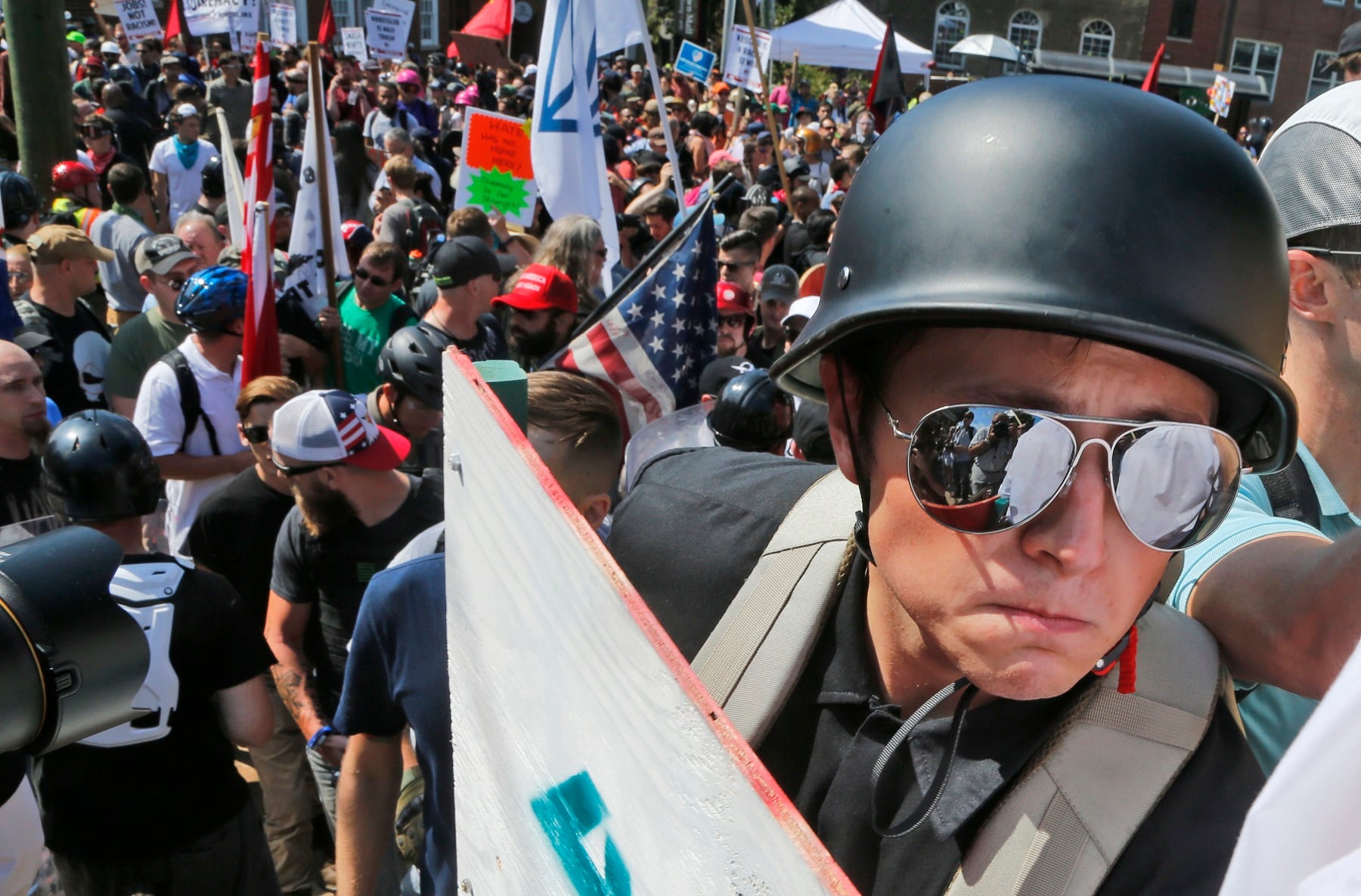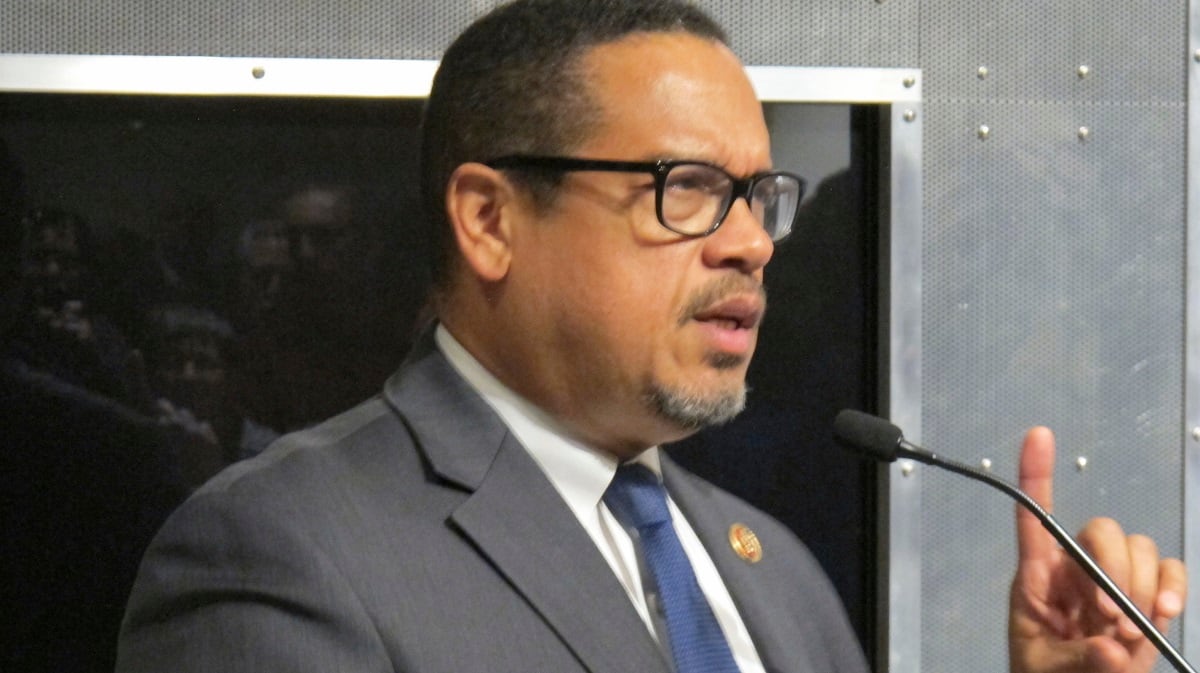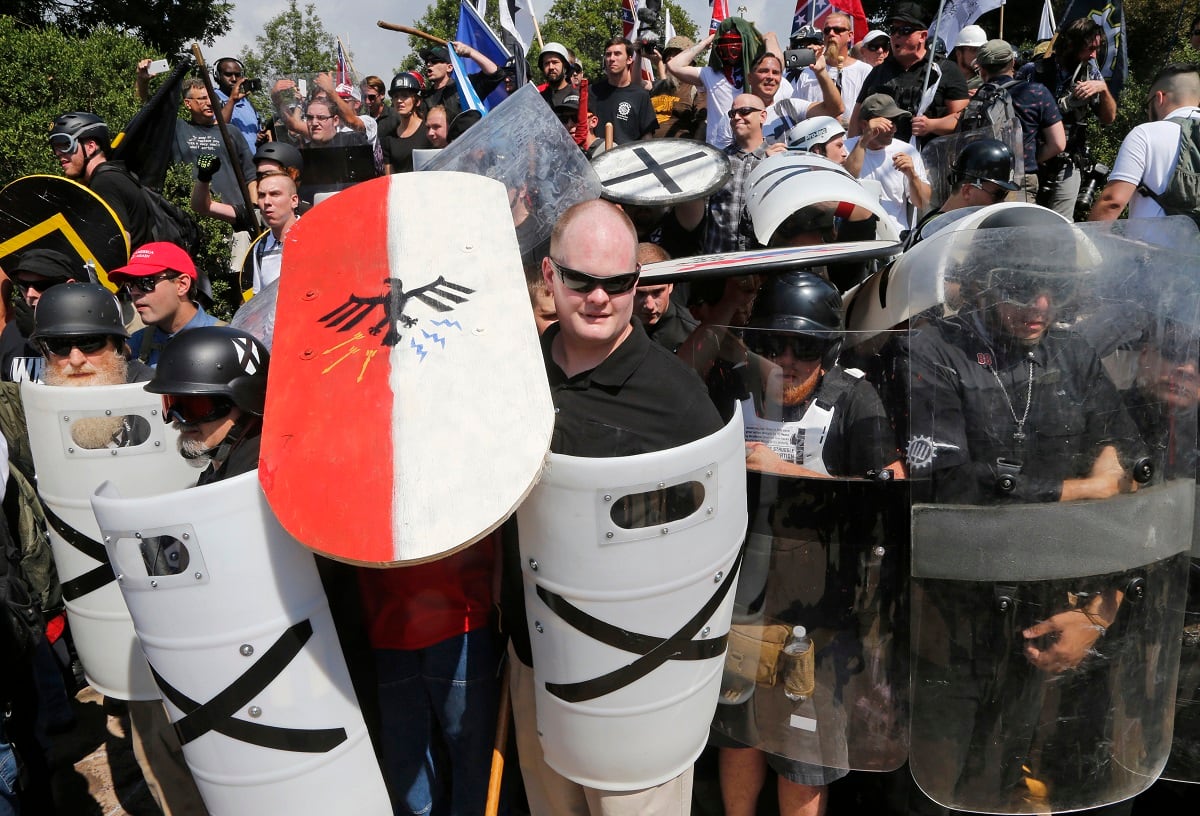WASHINGTON — A Minnesota congressman wants full details on what the military knows about extremist activity within its own ranks following news reports detailing at least three service members with ties to a white supremacist group.
Rep. Keith Ellison, a Democrat who was the first Muslim to be elected to Congress, set a letter to Defense Secretary Jim Mattis late last week asking for information on any investigations into troops’ extremist activities and “steps currently being taken to screen recruits for extremist ties” by the end of the month. He calls the problem an urgent threat to the armed forces.
“Although Department of Defense guidance clearly prohibits discrimination and extremist behavior, it appears that some service members are still able to join and actively participate in extremist organizations,” the letter stated, adding he sees evidence that “volunteers with seemingly credible ties to the white supremacist movement are being allowed to enter the military.”
The move stems from a recent ProPublica and Frontline PBS report which found evidence at least three current service members and three other veterans who belong to the white supremacist group Atomawaffen, which has been tied to the murders of at least five people in the last year alone.
RELATED

Ellison also cited in his letter an October 2017 Military Times poll which found nearly one in four troops have seen examples of white nationalism among their fellow service members, and troops rate it as a larger national security threat than some overseas conflicts.
In addition, nearly 42 percent of non-white troops who responded to that survey said they have personally experienced examples of white nationalism in the military.

Ellison said in his letter that he worries those instances may be indicative of larger problems within the armed forces.
“The involvement of service members in white supremacist organizations or other hate groups is cause for significant concern, particularly given their combat and weapons training,” he said.
Since the violent white supremacist rallies in Charlottesville, Virginia, last summer, military service chiefs and Mattis have spoken out publicly against racism and extremist ideology.
In a statement last fall, Joint Chiefs Chairman Gen. Joseph Dunford stated that “there is no place for racism and bigotry in the U.S. military or in the United States as a whole.” Mattis a few days later praised the military as a “widely diverse force” that would not tolerate hatred in the ranks.
But several lawmakers have questioned whether the military has done enough to investigate the issue and root out individuals with ties to the extremist groups, saying that overarching statements opposing radical ideologies is not enough.
Leo covers Congress, Veterans Affairs and the White House for Military Times. He has covered Washington, D.C. since 2004, focusing on military personnel and veterans policies. His work has earned numerous honors, including a 2009 Polk award, a 2010 National Headliner Award, the IAVA Leadership in Journalism award and the VFW News Media award.




